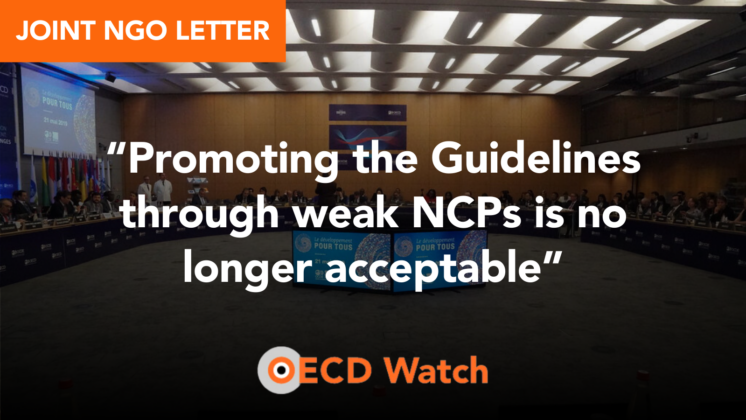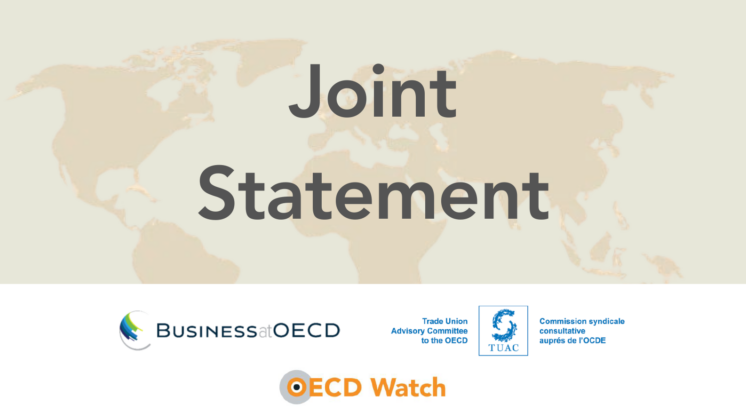Today, the OECD Watch network has submitted the first-ever appeal to the OECD’s Investment Committee challenging the Australian National Contact Point’s (NCP) handling of a complaint filed against the security firm G4S Australia Pty Ltd, which ran the Australian asylum centre, Manus Island, in Papua New Guinea. OECD Watch criticizes the Australian NCP for not being accessible and impartial in this case. Australia has failed to fulfil its obligations under the OECD Guidelines for Multinational Enterprises (the Guidelines). This action marks the launch of OECD Watch’s campaign for effective NCPs so that victims of corporate violations can have effective access to remedy.
 Photo: Wikimedia Commons
Photo: Wikimedia CommonsComplaint against G4S
The complaint that was rejected by the Australian NCP was filed by two NGOs in September 2014, in the aftermath of an outbreak of violence at the Manus Island Regional Processing Centre where asylum seekers to Australia are detained. One Iranian asylum seeker was killed and more than 70 others were injured. The complaint detailed G4S’s complicity in the human rights abuses of asylum seekers and its failure to protect detainee’s from violence, including assaults by its own employees.
Australia in breach of core principles for OECD NCPs
“As a member country to the OECD, Australia has an obligation to establish an accessible and impartial NCP,” says Dr. Joseph Wilde-Ramsing, Coordinator of OECD Watch.
The Australian NCP’s rejection of the complaint misapplied the OECD’s criteria for accepting complaints, falsely claiming that it could not accept a complaint against a company that had been contracted by the government because that could be interpreted as commentary on government policy. In fact, the Guidelines are clear that companies have an independent responsibility to respect human rights. In rejecting the case, the Australian NCP violated the core principles of accessibility and impartiality by which NCPs are required to operate. Most importantly, it left the victims of the abuse at Manus Island without access to remedy and allowed those complicit in the abuse to shirk their responsibility.
Current challenge against the Australian NCP
The formal challenge has been submitted by OECD Watch in collaboration with network members Human Rights Law Centre (Australia) and Rights and Accountability in Development (UK).
Joseph Wilde-Ramsing: “The Australian NCP’s failure to handle the G4S complaint and several other cases in accordance with the Guidelines is a breach of Australia’s international commitments and has eroded civil society’s confidence in the Australian NCP. The OECD must insist the Australian government take urgent action to meet its obligations under the OECD Guidelines and establish an NCP that can facilitate effective access to remedy for the victims of corporate abuse.”
OECD Watch campaign for effective NCPs
Joseph Wilde-Ramsing: “The Australian NCP’s handling of this case is just one example of the numerous instances in which governments are failing to honour their commitments to have effective NCPs. Today we begin a campaign to ensure that NCPs are effective and facilitate access to remedy.”
Read more:
- The text of the challenge that has been submitted to the OECD’s Investment Committee and the complaint against G4S can be found here.
- More information about the campaign.
About the OECD Guidelines for Multinational EnterprisesThe Guidelines are a set of state-backed international standards for responsible business conduct by multinational corporations operating in or from OECD member states and other adhering countries. The Guidelines cover a range of topics including human rights, employment and industrial relations, the environment, combating bribery, consumer interests, information disclosure and taxation. There are 35 OECD countries and 13 adhering countries, which have subscribed to the Guidelines. These countries are all legally bound to establish national contact points (NCPs), tasked with handling complaints related to corporate breaches of the Guidelines that are filed by civil society organisations, trade unions or victims of corporate misconduct. This means that NCPs have the potential to provide effective access to remedy for victims of corporate abuse. OECD Watch has the ability to appeal a NCP’s handling of complaints through the process formally known as a substantiated submission. |














